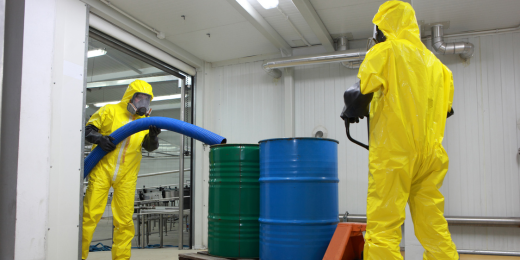How Reclaim Waste can Save You Time, Stress, and Money.
How Reclaim Waste can Save You Time, Stress, and Money.
Blog Article
Reclaim Waste for Beginners
Table of Contents7 Easy Facts About Reclaim Waste ShownExcitement About Reclaim WasteA Biased View of Reclaim WasteThe 3-Minute Rule for Reclaim WasteThe Ultimate Guide To Reclaim Waste
Discover the types, events, and kinds of liquid waste. Residential sewage waste describes the waste and items from a residential septic system. This kind of waste is created by humans in houses, colleges, and other structures. This only includes septic tanks that have a drainpipe area. The correct management and disposal of domestic sewage waste call for liquid waste to be moved to a sewer treatment plant where the proper techniques and equipment are related to cleanse and throw away waste.
Business waste usually includes potential risks, such as flammable products or a combination of fluid and solid waste products, and calls for a more innovative and comprehensive disposal process. The disposal of industrial waste normally involves the filtration of waste before transport to ensure safe and correct disposal. Hazardous waste is created from results and runoff of commercial processes and production.
This sort of waste can not use the same sewer monitoring transportation or procedures as septic or business fluids. The hazardous waste management procedure needs the evaluation and testing of fluid waste before it undertakes the disposal process (liquid waste disposal melbourne). Overflow waste is the fluid waste that comes from runoff and excess stormwater in highly populated areas or cities
Runoff waste can trigger contamination and flooding if not dealt with properly. Find out more regarding sewage system cleansing and waste monitoring. Making certain appropriate waste administration can prevent catastrophes and reduce environmental damage. Both people in domestic setups and specialists in industrial or manufacturing sectors can benefit from recognizing the processes and regulations of liquid waste monitoring.
All About Reclaim Waste
Contact PROS Providers today to find out about our waste management and disposal solutions and the correct methods to care for the liquid waste you create.
(https://issuu.com/reclaimwaste1)This supposed 'wastewater' is not only an important resource yet, after therapy, will certainly be launched to our land, waterways or the sea. Utilized water from bathrooms, showers, bathrooms, kitchen area sinks, laundries and industrial processes is known as wastewater.

water utilized to cool machinery or clean plant and equipment). Stormwater, a form click over here of wastewater, is runoff that flows from farming and urban areas such as roof coverings, parks, yards, roadways, courses and gutters into stormwater drains, after rain. Stormwater streams without treatment straight to local creeks or rivers, eventually reaching the ocean.
Reclaim Waste - Truths
In Queensland, the majority of wastewater is dealt with at sewage therapy plants. Wastewater is carried from domestic or commercial sites through a system of sewers and pump stations, referred to as sewerage reticulation, to a sewage treatment plant. City governments build, keep and run most sewer therapy plants. Operators are licensed under the Environmental Protection Act 1994 to release cured wastewater at an appropriate environmental standard into waterways.
The Division of Natural Resources suggests city governments regarding handling, operating and preserving sewerage systems and therapy plants. In unsewered locations, local governments may call for owners to set up specific or house sewer therapy systems to treat residential wastewater from toilets, kitchens, restrooms and washings. The Department of Natural Resources authorises making use of house systems when they are confirmed to be efficient.
The majority of stormwater receives no treatment. In some new subdivisions, therapy of some stormwater to eliminate litter, sand and gravel has begun utilizing gross contaminant traps. Wastewater treatment happens in 4 phases: Removes strong issue. Bigger solids, such as plastics and other things incorrectly discharged to sewage systems, are gotten rid of when wastewater is passed through displays.
Utilizes tiny living organisms knows as micro-organisms to break down and get rid of remaining dissolved wastes and great particles. Micro-organisms and wastes are included in the sludge.
How Reclaim Waste can Save You Time, Stress, and Money.
Nutrient removal is not readily available whatsoever sewage therapy plants due to the fact that it calls for pricey specialist equipment. It is coming to be a lot more typical in Queensland. Clear fluid effluent generated after therapy might still have disease-causing micro-organisms. If this effluent is launched right into rivers such as rivers or the sea, the micro-organisms will at some point pass away out.

Most wastewater flows into the sewage system. Under the Act, regional governments provide approvals and licences for ecologically appropriate tasks (Periods) including wastewater launches that might have a neighborhood influence.
The 10-Minute Rule for Reclaim Waste
Monitoring supplies valid details concerning water quality and can validate that permit problems are being satisfied. The info acquired through surveillance supplies the basis for making water high quality decisions.
Report this page